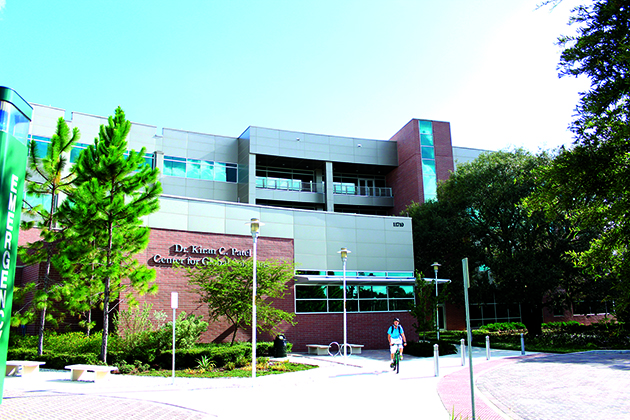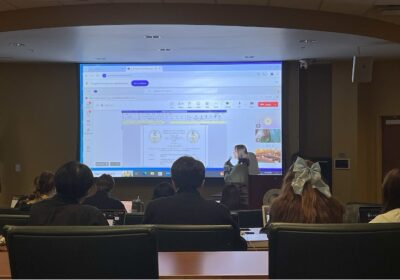Coronavirus concerns halt USF travel to China

As coronavirus cases rise and flights to and from China fall, college campuses around the globe are opting to limit their travel to the country. USF is no different.
As of Feb. 5, there have been 12 positive cases for the coronavirus in the U.S. The number of confirmed cases worldwide has reached 28,018 with a death toll of 563, according to the New York Times.
American Airlines, United and other airlines have announced that they are limiting and temporarily delaying flights to that area.
USF President Steven Currall announced in an email last Friday that “USF is temporarily suspending all university-related travel to China for students and faculty.”
This suspension includes faculty research-related projects as well as spring and summer study abroad programs to China.
Vice President of USF World Dr. Roger Brindley said over 2,000 USF students participate in year-round study abroad programs.
The concern for study abroad travel to China is low, considering there aren’t any active programs as of right now. However, there are a few students that are in China for graduate accommodations.
Two Chinese students are completing internships for their master’s degrees but they are expected to be there for the entirety of the spring semester.
Another student is completing a semester in an at-sea program but the organization that runs the program chose to remove its Chinese portion from its schedule.
A couple of travelers for research, USF faculty and staff, have also canceled their trips to China, which were scheduled for the next couple of weeks.
Given the uncertainty of the coronavirus, Brindley said USF World is encouraging students to rethink any study abroad plans to China until more details about the outbreak come out.
“I don’t think anybody quite knows whether or not the coronavirus has peaked or if it will continue to grow or if it will spread beyond China or not,” Brindley said.
It’s a waiting game at this point as to when the suspension period will be lifted.
Some of the study abroad programs are led by faculty, but others are run through off-campus affiliations such as International Studies Abroad (ISA), so it will be up to those programs to choose how they want to proceed.
Other than the study abroad ambiguities, USF World is also accountable for overseeing the international student population.
Out of the 46,216 students registered in the USF system, over 4,600 students have an F1 visa — a nonimmigrant visa used to study in the U.S., according to Brindley.
Of those students, 740 are of Chinese heritage which makes up about 16 percent of the international population.
As the number of coronavirus cases increase, seemingly, so has the xenophobia worldwide. People of Asian descent reported that they are being accused of spreading the virus because of their race, according to a TIME article.
Business Insider reported that a woman working at a Costco in Washington state turned away a kid wearing a face mask because she feared he was from China and would give her the coronavirus.
Also, the French daily newspaper Le Courrier Picard described the virus as a “yellow alert,” prompting people of Asian descent to start the hashtag #JeNeSuisPasUnVirus on social media Jan. 30 which translates to “I am not a virus.”
Brindley said USF has 27 students from the Wuhan, Hubei province in China.
“Most of [the students from Wuhan] did not travel over the holidays, but for all of them that did, they have returned from the beginning of the semester, which is now four weeks ago,” Brindley said.
“We know that our Chinese students at USF are well and healthy.”
Some Chinese students nationally and on the USF campus have resorted to wearing face masks to avoid assumptions from their peers or uncomfortable stares.
“There’s no reason for xenophobia,” Brindley said. “Health doesn’t know national boundaries. Health doesn’t know politics.”
Even though the coronavirus is a global outbreak, Brindley advises students to still pursue study abroad plans in the future.
“There have only been [12] reported cases in the U.S. so far,” Brindley said. The flu kills 80,000 Americans a year so if we are actually worried about our health, we should be washing our hands and practicing simple good hygiene. We are far more likely to catch the flu than anything else.
“I share this not to downplay the seriousness of the coronavirus but because we need to keep everything in perspective.”
As of Wednesday, there were no reported cases in Florida and the Centers for Disease Control said the virus risk is low in the U.S.
Brindley encourages students to be aware of their surroundings and pay attention for any study abroad updates to come.
“[Students from Wuhan] are all worried about their loved ones back home,” Brindley said. “They are worried if their parents, brothers and sisters will be safe.
“We all need to be vigilant and conscious of our health and in the meantime, we need to make sure that the 740 Chinese students who study at the university are cared for and respected.”






